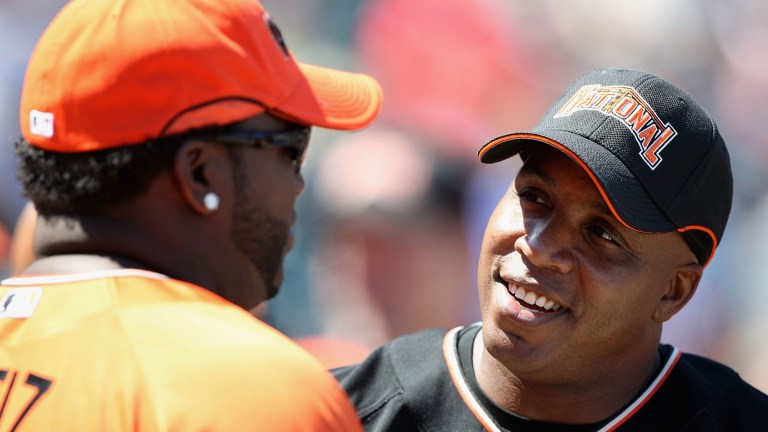Re-Award Season: 1991 NL MVP, Barry Bonds
As we look through history at awards races that should have ended differently, here is one year where Barry Bonds was snubbed from an MVP.

Some history is revisionist history. With respect to those honored with postseason awards, there were instances in which someone was more deserving. Understanding changing criteria and added scrutiny recently toward the voting process, we began our look back at awards that need a redo.
If the voting for something like the MVP was a pure popularity contest, Barry Bonds didn’t do himself any favors. His personality sometimes bordered on ornery and other times he crossed the border to full-fledged irritable land. This attitude had a negative effect on the press and even his own manager in a famous spring training tirade.
But it would be hard for anyone, including Pirates skipper Jim Leyland, to dispute his baseball talents. Bonds was coming off his first of what would be seven NL MVPs in 1990 at a time in his career when all his tools were at their sharpest.
While he was not yet the ungodly power hitter he’d become with the Giants, Bonds still knocked 25 over the fence in ’91. It was a reduction from the 33 he totaled the year before. But when complemented with more RBIs (116 from 114), more walks (107 from 93), and fewer strikeouts (73 from 83) it was of little problem.
For the first time, Bonds led the league in on-base percentage. For the second-straight year, he led the league in OPS and OPS+. And for the second consecutive season, he won the Gold Glove Award for left fielders.
And yet there was Terry Pendleton winning the 1991 National League Most Valuable Player, placing ahead of Bonds in the closest election since ’79. What Pendleton did have going for him?
He won the batting title at .319, bested Bonds in hits with 187, and also had a slightly better slugging percentage — all while being instrumental in turning the Braves around from last to first.
And he wasn’t a gigantic pain in the ass.
Personality shouldn’t matter when it comes to an on-field honor. But it’s widely known that the stark contrast between the top vote-getters is what made the difference.
But based on statistics, there are numerous categories in which Bonds is superior. He easily bested Pendleton in RBIs, stolen bases, walks, and OBP. Bonds also had an 8.0 WAR compared to Pendleton’s 6.1 — which was even lower than the Cubs’ Ryne Sandberg (7.0) and matched Cincinnati’s Barry Larkin.
It’s not a sympathy vote, but we can retroactively let Terry Pendleton have this. Individually, he was very good to great. His teams were very good to great. But in terms of ultimate success, his luck ran dry. Before the Braves, he was part of a perennial contender in St. Louis.
He joined the Cardinals two years after they won the ’82 World Series. He got there in ’85, only to see the Cards relinquish a 3-1 lead to the Royals. He got back in ’87, only to see the Cards lose the last two in Minnesota. The Braves ended up in the World Series in that magical ’91 season, beating Bonds and the Pirates in seven games to get there. For what it’s worth, neither player was up to their standards: Terry went 5-for-30 at the plate, Barry was 4-for-27.
A new team did not mean a new Fall Classic ending. Yet again, Pendleton was on a club that won three Fall Classic games but not a fourth. And it was also the Twins that beat him.
Atlanta returned the next year…and fell to Toronto. Pendleton moved on to the Marlins in 1995. That just so happened to be the year the Braves broke through and won it all. He returned to the Braves in 1996, just in time for them to lose another World Series (this one to the Yankees). Then of course the Marlins won it all in 1997.
Pendleton’s career ended in 1998 without being part of a championship roster, so the MVP is a solid consolation prize for a ring he certainly deserved. For Bonds, an eighth MVP would have been nice, but ultimately would not have changed his career resume in any meaningful way.
